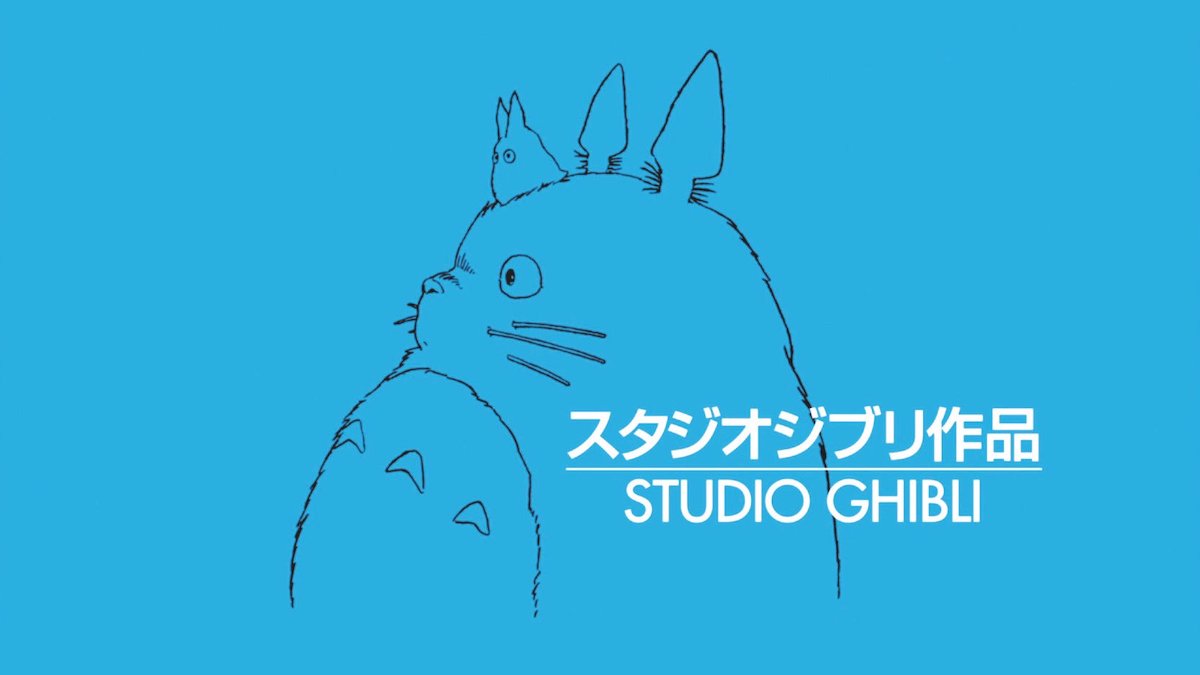Studio Ghibli might be the most beloved animation studio in history. For nearly forty years they’ve been turning out impeccably animated movies brimming with heart and soul and delighting audiences around the world. While the most notable creative force in their stable is the legendary Hayao Miyazaki, their catalogue boasts the considerable talents of directors Isao Takahata, Hiroyuki Morita, and Yoshiaki Nishimura, composer Joe Hisaishi, and a huge array of A-list Western and Japanese voice talent.
So, if you’re a Ghibli novice, which movies should you track down and which ones are skippable? Here’s our ranking:
24. Earwig and the Witch (2020)
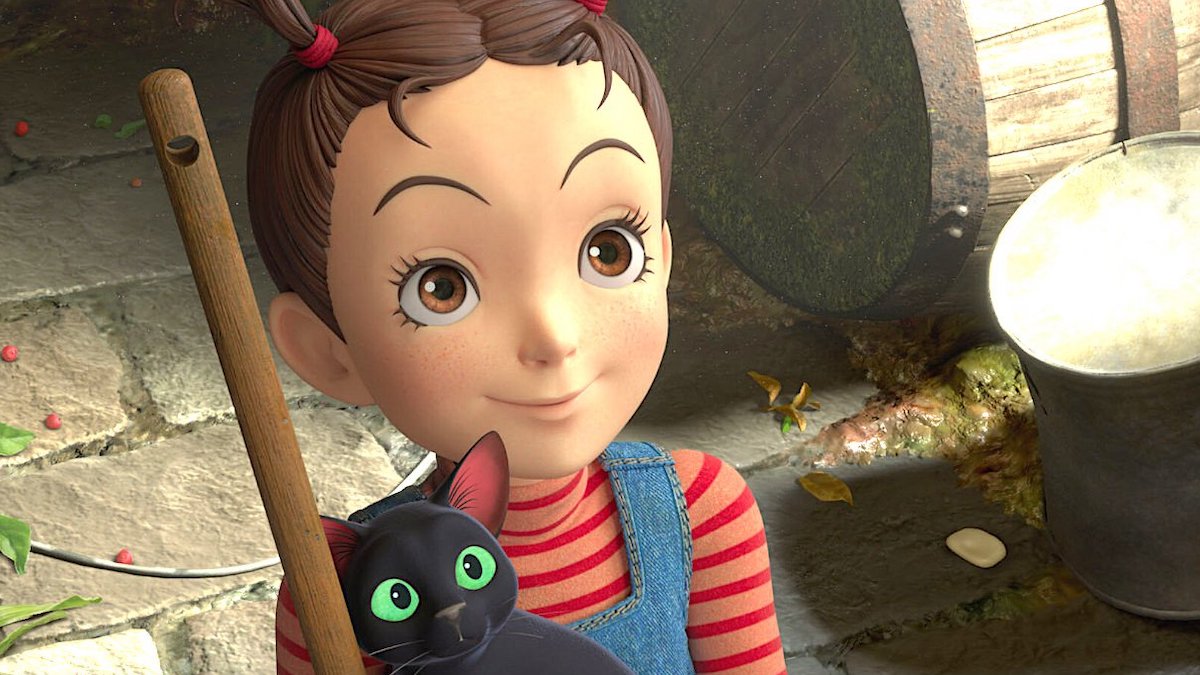
Let’s get it out of the way. Gorō Miyazaki’s Earwig and the Witch sucks. Ghibli is famed for its mastery of hand-drawn animation, but this unfortunate sidestep sees them taking on Pixar in CGI animation. And something went badly wrong here, as this is less Ghibli magic and more a pre-rendered cutscene from a budget PlayStation 2 game. It’s shocking that this was ever released considering how cheap and dated it looks. Earwig represents the one unambiguous black mark in the Ghibli collection. Avoid.
23. Tales from Earthsea (2006)
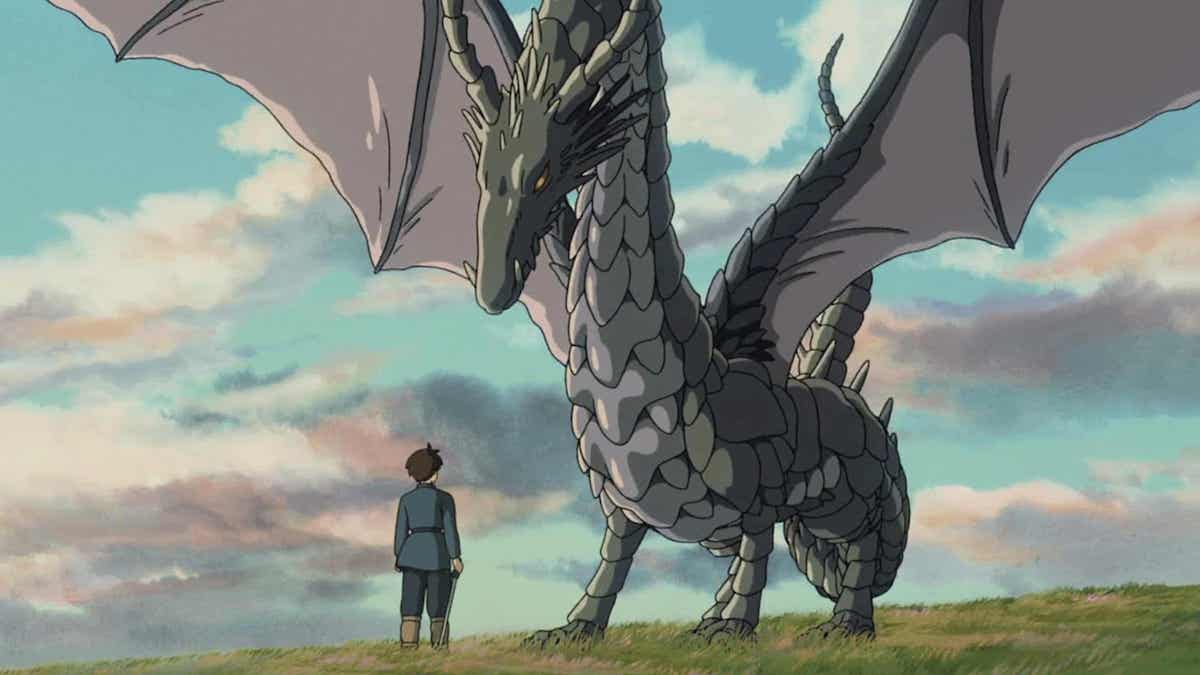
Hopes should be high for a Ghibli movie with a cool-looking dragon on the poster, but Gorō Miyazaki’s Tales from Earthsea falls far short of expectations. Very loosely adapted from Ursula K. Le Guin’s Earthsea novels, the movie is a tangled and somewhat dull fantasy story that never gets off the ground. Perhaps the strongest criticism came from Ghibli mastermind Hayao Miyazaki, when asked for his opinion of his son’s movie he simply said: “I was looking at my kid. He’s not an adult yet. That is all.” At the time Gorō was 41. Ouch.
22. My Neighbors the Yamadas (1999)

Studio Ghibli movies tend to appeal around the world, though Isao Takahata’s My Neighbors the Yamadas is perhaps a little too idiosyncratic to work outside Japan. Based on the comedic family manga Nono-chan, the movie is a series of short vignettes showing typical Japanese family life. While there are a handful of touching and funny moments, the lack of any over-arching narrative connecting the stories drains energy from the movie, while a lot of jokes are too culturally specific to Japan to work well elsewhere.
21. Ocean Waves (1993)
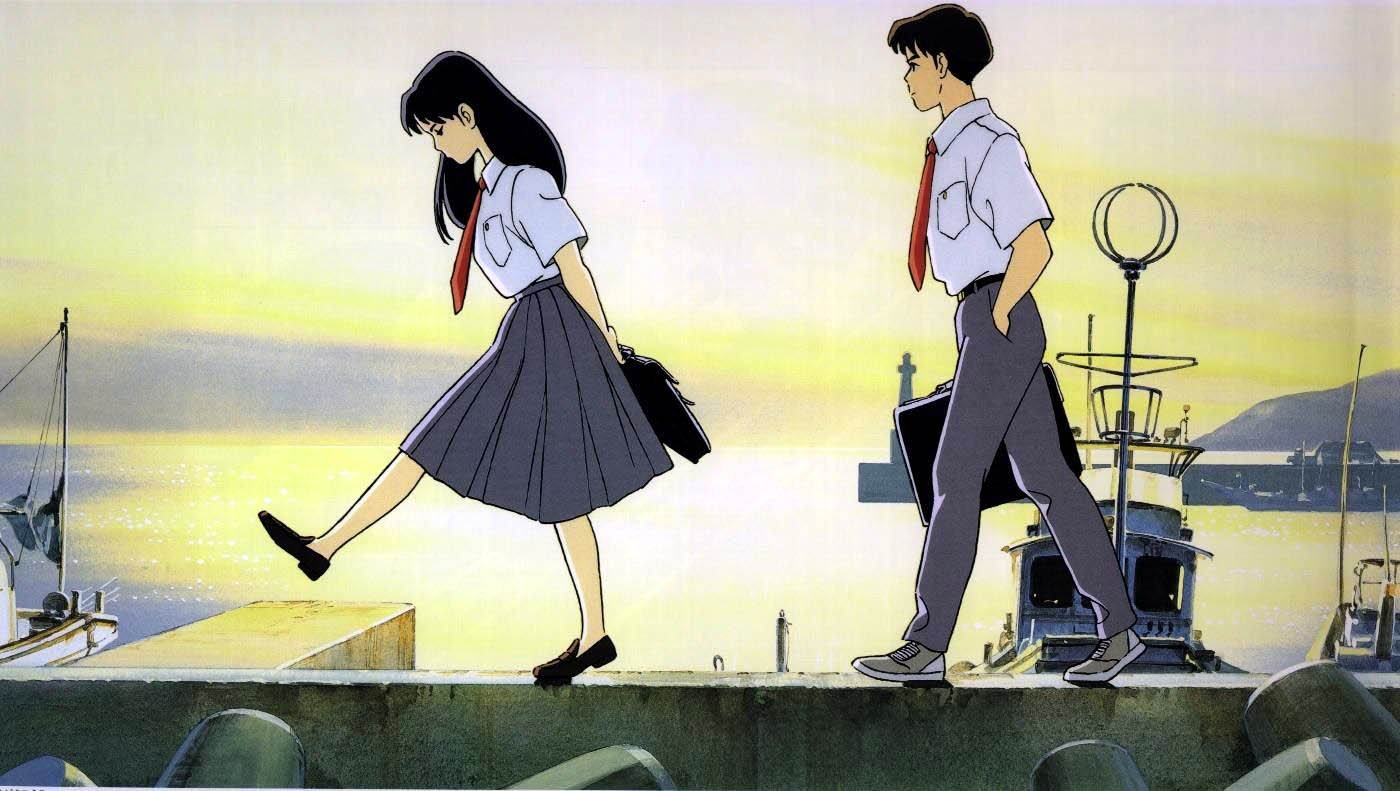
In the early 90s Ghibli decided to temporarily depart from the fantasy/fairytale fare that made their name. One of the results was Ocean Waves, a low-key romantic drama about a love triangle between three Tokyo high-schoolers. It’s a competent movie that delivers the conflict, tension, and heartbreak you’d expect from a romantic drama, though at a scanty 72 minutes (it was originally presented on TV) it’s far from the emotional and thematic complexity that Ghibli is known for.
20. From Up on Poppy Hill (2011)
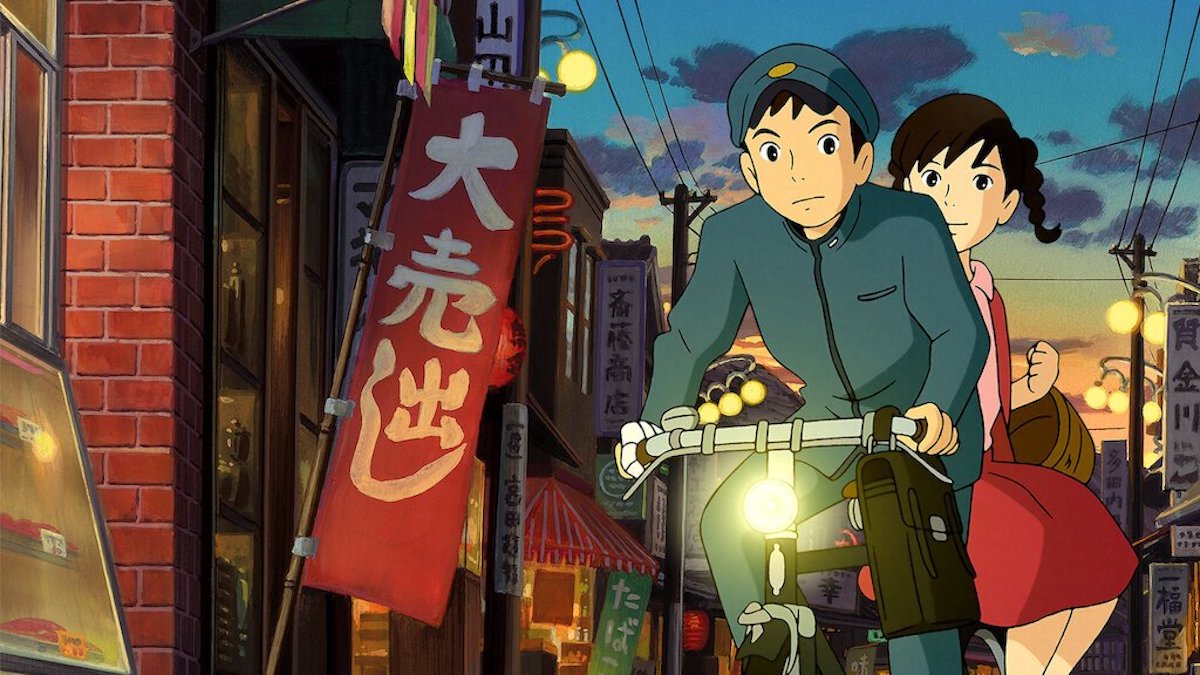
Though the best of Gorō Miyazaki’s work, it though pales in comparison to almost everything else Ghibli has done. From Up on Poppy Hill is a 1960s-set low-stakes drama about a group of high-schoolers attempting to save their school’s clubhouse from demolition. It’s a decent snapshot of life during Japan’s post-war economic recovery era and its character interactions are sweet and warm-hearted, though at times it can get a little dull. Good for a lazy Sunday afternoon if you’ve seen the rest of the movies and want a hit of minor Ghibli magic.
19. Only Yesterday (1991)
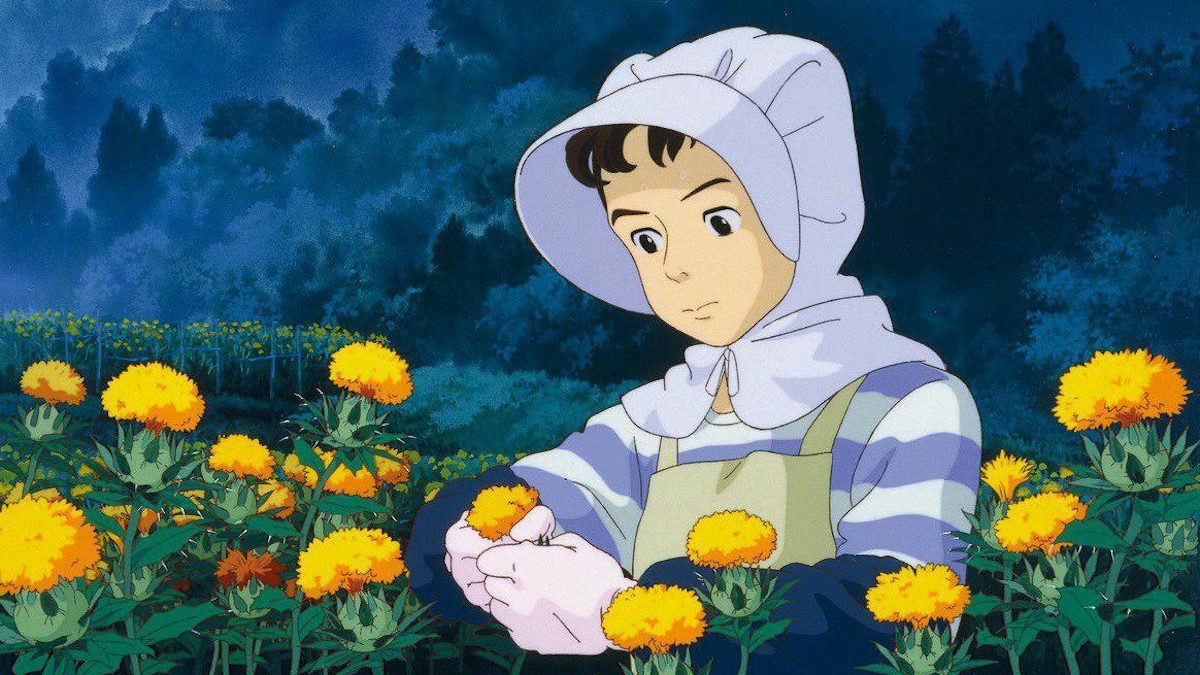
Another easy-going and small-scale movie, though this time the careful focus on realism pays off. Set in 1982, Only Yesterday follows a woman in her mid-20s who takes a trip out of Tokyo to assist her rural in-laws during harvest season. While there she begins to re-evaluate her life, wondering what happiness the urban ratrace really offers. There are no fantastical beasts or epic scenery here, but director Isao Takahata does a brilliant job of making this rural world appealing and vibrant.
18. When Marnie was There (2014)

This gentle kinda-sorta ghost story has a lot going for it. As usual Ghibli’s depictions of nature — particularly a shifting coastal landscape — are some of the best-in-class and it has a great sense of mystery to it as you slowly realize what’s really going on between lonely 12-year-old Anna and the apparently phantasmagorical Marnie. The payoff is worth the journey and even if you’re not sucked in by the story, anyone should be able to appreciate the intricate character animation.
17. Arrietty (2010)

A charming adaptation of Mary Norton’s The Borrowers, this transports us to a minature world that lets the animation team go nuts. Water, plants, and fabric all move as they should at this scale, and the amazing hand-painted backgrounds round out a world crafted from ‘borrowed’ items from our world. It’s a fine story and a good-looking film. However, there is one big caveat.
There are two English dubs available – one from America and the other from England. We absolutely recommend the English dub, which features a 15-year-old Tom Holland in his first major movie appearance, Saorsie Ronan as the title character, and support from Olivia Colman and Mark Strong. Plus, the American version wraps up with a truly dreadful pop song and unnecessary voiceover over-explaining the ending.
16. Whisper of the Heart (1995)
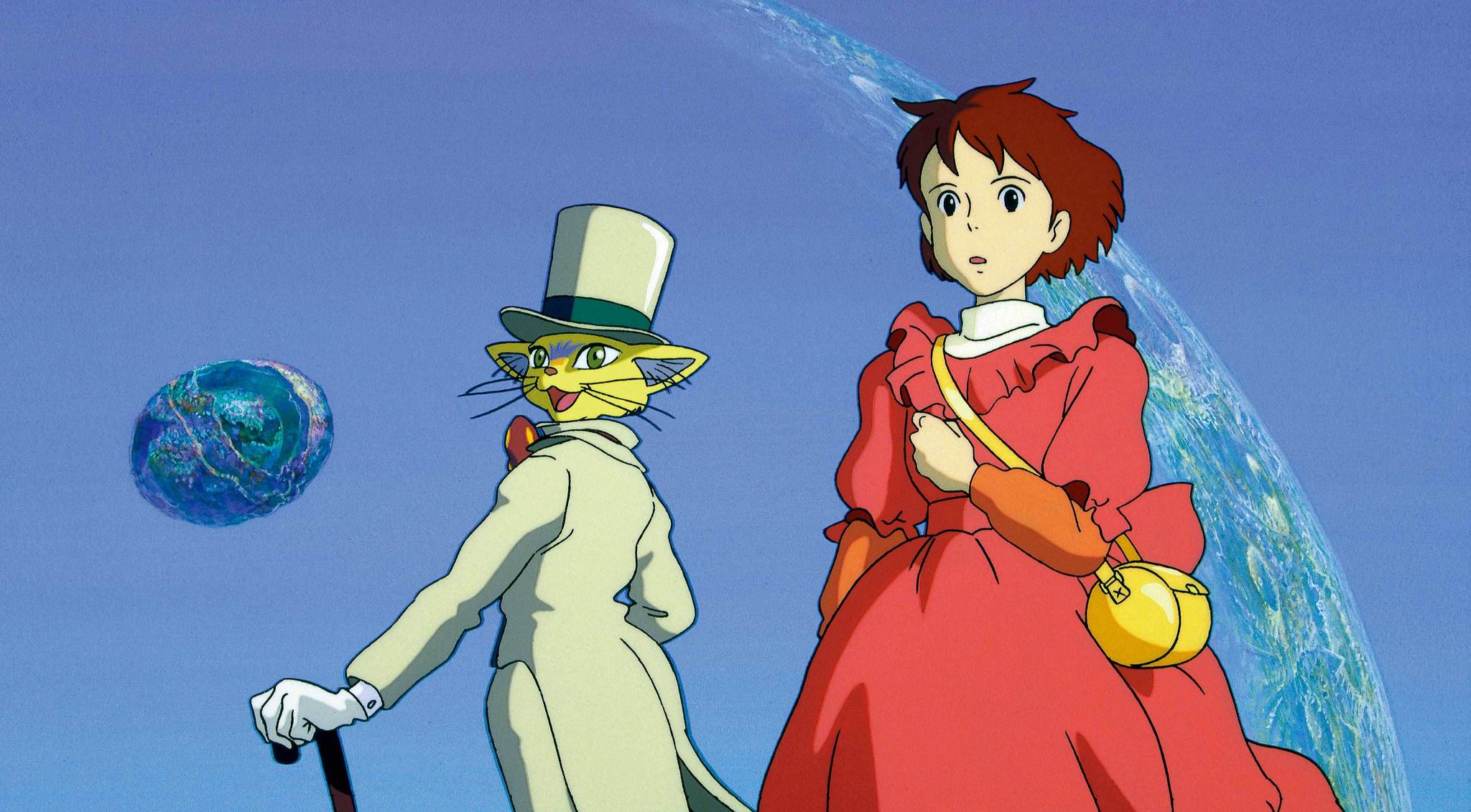
Another low-key drama about a lonely teenage girl (you may be detecting a theme in Ghibli’s work by now…), this is a romance story about creativity, the sacrifice that comes with fully devoting yourself to a craft and long-term commitment. At the core of the movie are two 14-year-olds: would-be writer Shizuki and violin-maker Seiji. When Shizuki commits to writing a novel we’re transported into a fantasy sequence with charismatic anthropomorphic cat the Baron, and there are few better sequences of pure strain Ghibli wonderfulness.
The sad coda is that Whisper of the Heart is Yoshifumi Kondō’s directorial debut, having previously been animation director on many of Ghibli’s best movies. Considered by Hayao Miyazaki and Isao Takahata as their successor, he died suddenly in 1998 at age 47 of an aneurysm said to be brought on by overwork.
15. The Cat Returns (2002)
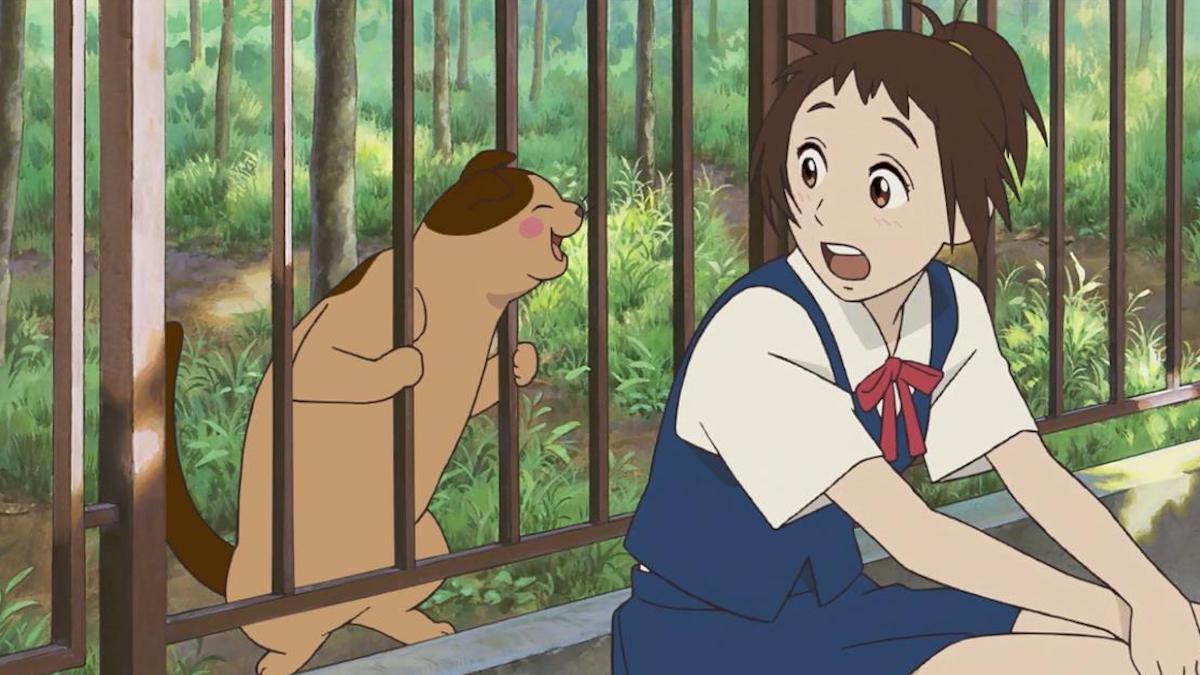
Whisper of the Heart‘s Baron proved too awesome for just one movie appearance, so makes a barnstorming return in the slightly goofy but extremely fun The Cat Returns. Basically, if you find cat videos funny you’ll love this. We follow Haru, a shy high school girl who risks her life to save a cat from being killed by a truck. Said cat proves to be the Prince of the Cat Kingdom, who is so grateful to Haru they whisk her away to the Cat Kingdom and grant her the ‘honor’ of marrying him.
There’s not a great deal of profundity here, but exploring the Cat Kingdom is as delightful as you’d expect.
14. Pom Poko (1994)
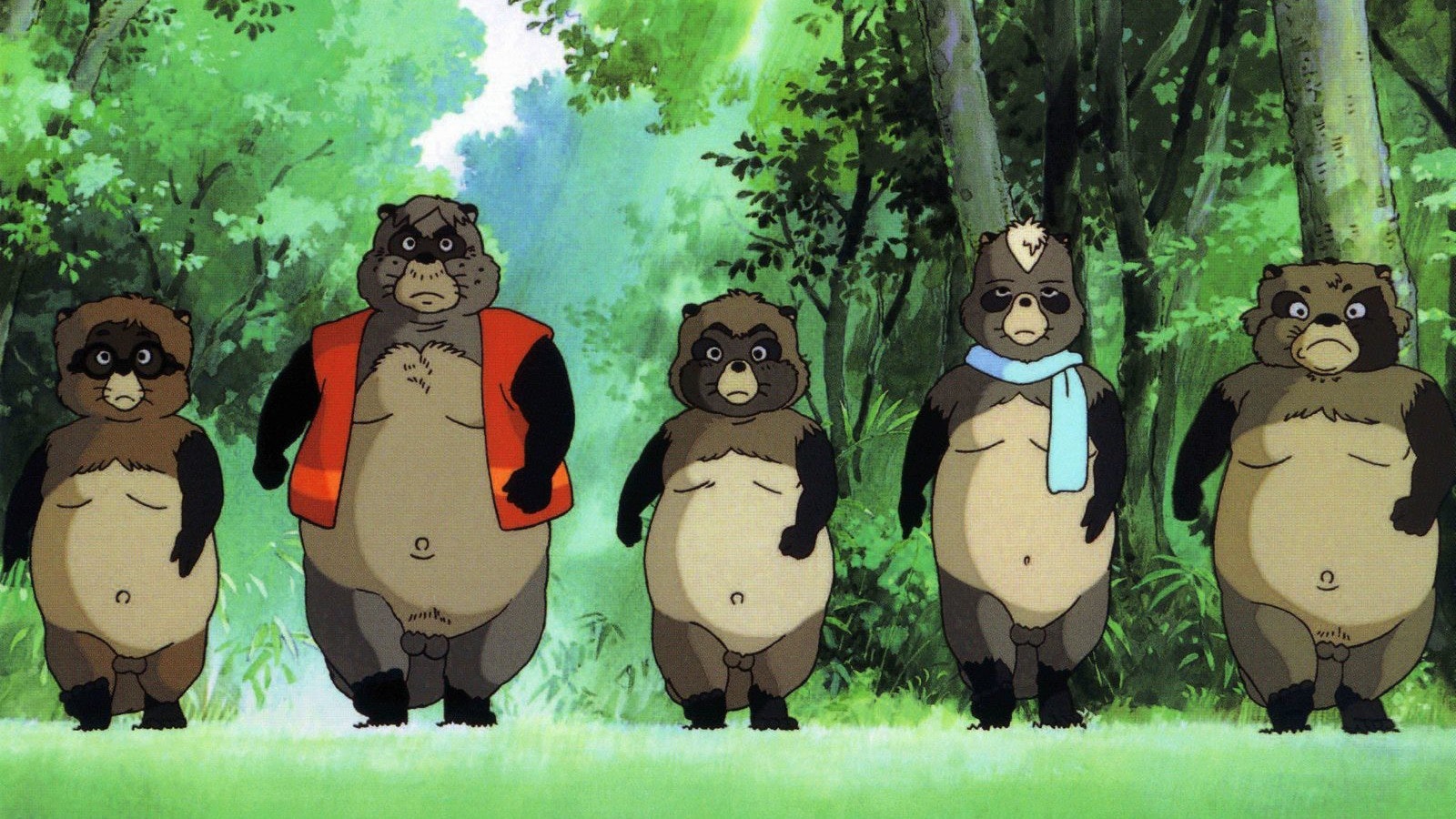
This tale of shapeshifting raccoons — okay fine, tanuki — with weaponized testicles is a truly bizarre watch if you’re not familiar with Japanese folklore. When this was re-released by Disney you can imagine the translation team struggling to figure out how to deal with a movie that ends with a giant ballsack fight (the dub primly calls them “raccoon pouches”). On a surface level Pom Poko is a movie about cute talking animals on a mission to save their home, though lying just below the surface is a sobering take on urbanisation and the loss of traditional ways of life that’s about as Ghibli as it gets.
But yeah, the testicle fighting is great.
13. The Wind Rises (2013)
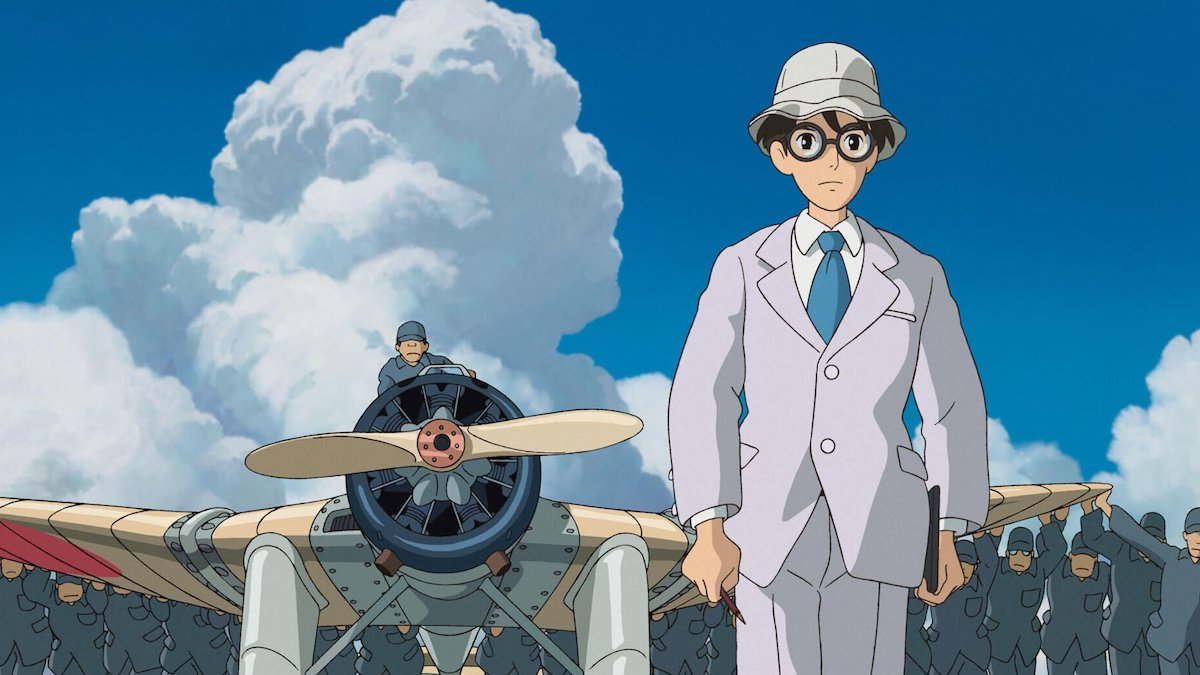
By 2013 Hayao Miyazaki had firmly established himself as an animation legend, with any new work from him being met with hushed reverence. But the clearly deeply personal The Wind Rises raised more than a few eyebrows in the West, as it’s a biography of aircraft designer Jiro Horikoshi, who created the Japanese fighter planes used during World War II.
Miyazaki is a committed pacifist and The Wind Rises in no way glorifies war, with the core tension of Jiro’s passion for aircraft design versus what they’re ultimately used for. That Miyazaki would stride into controversial and complicated political/moral territory proves he’s not resting on his laurels, though as the most mature entry in the Ghibli catalogue, it’s perhaps not for everyone.
12. Castle in the Sky (1986)
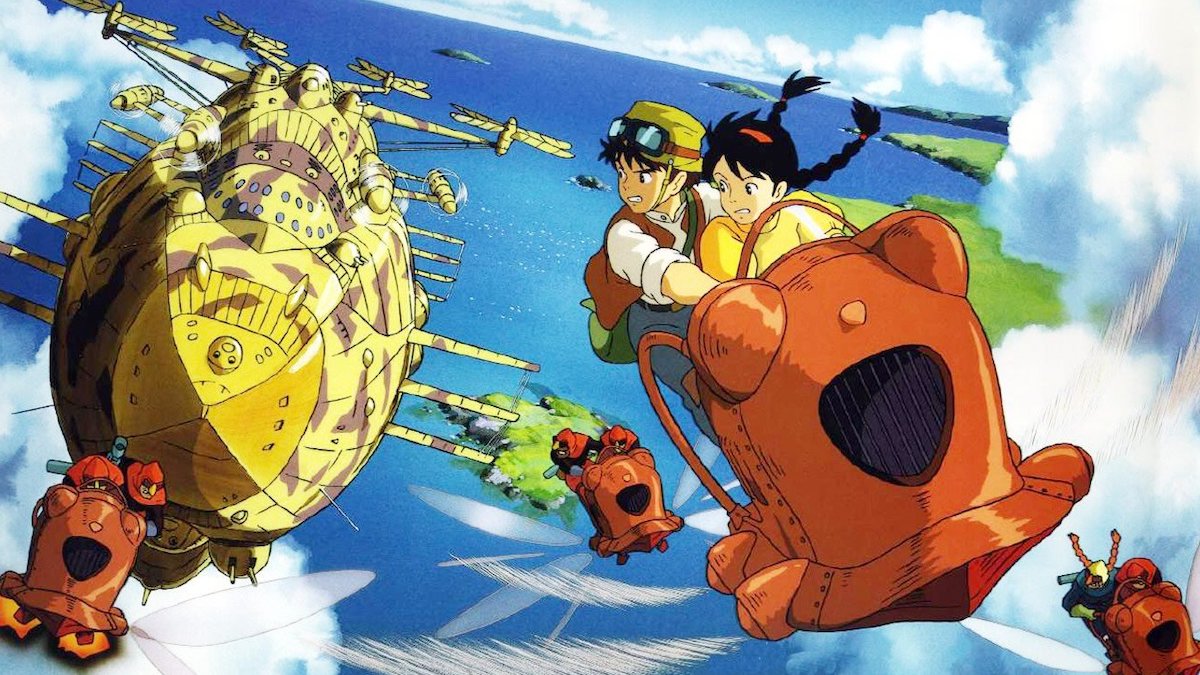
Miyazaki’s first film under the ‘Studio Ghibli’ name really turned some heads. Castle in the Sky is a fast-paced adventure story about a young boy and girl searching for a legendary floating castle, set against the backdrop of military conflict. It’s a magical adventure that’s left its fingerprints on popular culture, going on to influence a lot of video games and popularize the steampunk aesthetic.
Miyazaki staked an early claim to genius here, combining inspirations from a visit to Welsh mining towns during the Miner’s Strike, architectural influences from ancient Babylon in the floating city, and a faux-Victorian patriotic military aesthetic. Synthesized together they add up to something that still feels fresh 36 years later.
11. The Tale of the Princess Kaguya (2013)

Isao Takahata’s final film before his death in 2018 has some of the most jaw-dropping visuals in the Ghibli catalogue. It adapts the 10th century Japanese fairytale The Tale of the Bamboo Cutter, switching up things from the usual Ghibli house style for extraordinarily beautiful watercolors, elegantly inked outlines, and minimalist but evocative backdrops. This was the most intensive production in the studio’s history, took eight years to complete, and currently holds the record for the most expensive movie ever made in Japan.
Let’s just say the blood, sweat, and tears the artists at Ghibli put into this more than paid off.
10. Nausicaä of the Valley of the Wind (1984)
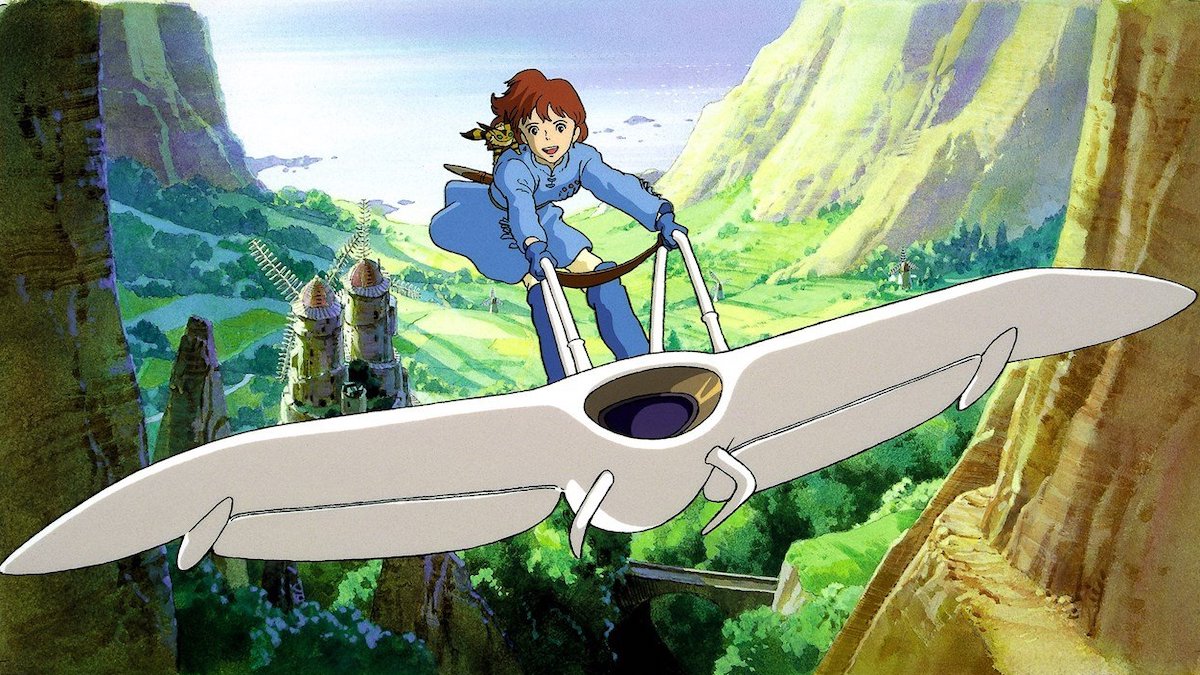
So, this isn’t technically a Studio Ghibli movie, but given that it’s directed by Miyazaki and those that made it would form Studio Ghibli soon afterward — not to mention that it’s part of Disney’s “Studio Ghibli Collection” — we’re going to include it.
Nausicaä deserves its mention, as despite a very low-key Western release, a butchered edit, and bad English dub, it made animation aficionados sit up and begin paying attention to anime. This was also the first time we saw Miyazaki working with the themes that would become his trademark, eschewing a simple good vs evil narrative for moral complexity, weaving in environmental themes, and the importance of living in balance with nature. It went on to inspire everything from the Final Fantasy games (particularly Chocobos) to Star Wars: The Force Awakens, and is basically a must-watch.
9. Howl’s Moving Castle (2004)

Miyazaki’s adaptation of Dianne Wynne Jones’ fantasy novel was borne from the “great deal of rage” he felt about the pointlessness of the Iraq War, with the film depicting magic and wonder being stamped out by invading armies. As this is Miyazaki, there’s more complexity than a simple scream of protest, with the core message of the movie being that even the process of resisting war can transform you into a monster.
As you’d expect it’s a visual wonder, especially the moving castle, which gently picks its way through the landscape on mechanical chicken legs and whose doors open out onto streets around the world. It also boasts a fantastic English dub with Christian Bale as Howl, Lauren Bacall as the Witch of the Waste, and Billy Crystal as Calcifer.
8. The Boy and the Heron (2023)
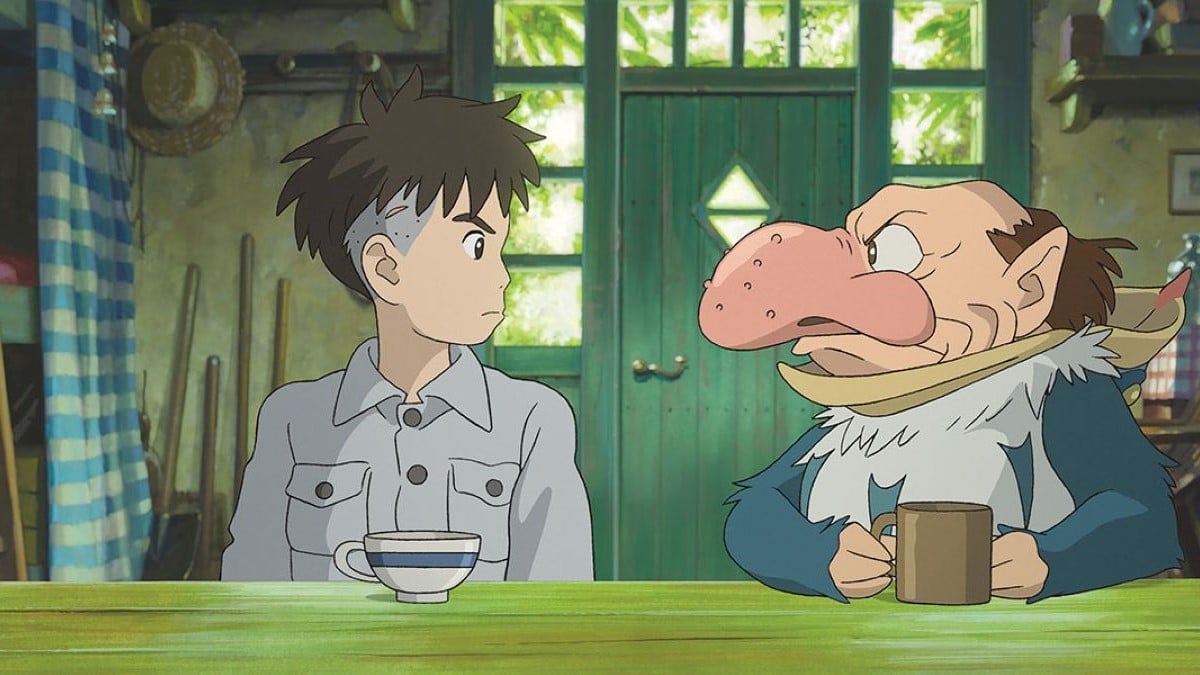
Rumors of Miyazaki’s retirement proved to be untrue and the animation master spent years diligently working on this typically personal and philosophical tale. There just aren’t many octogenarians making films this visually dazzling and full of life. As with the best Miyazaki movies there’s a critique of humanity’s worst traits, but we appreciated the eventual optimism.
As is typical for Ghibli at this point the dub is outstanding, particularly Robert Pattinson’s turn as The Grey Heron. If he ever wants to hang up the cape and cowl, he’s absolutely got what it takes to be a talented voice actor.
7. Ponyo (2008)
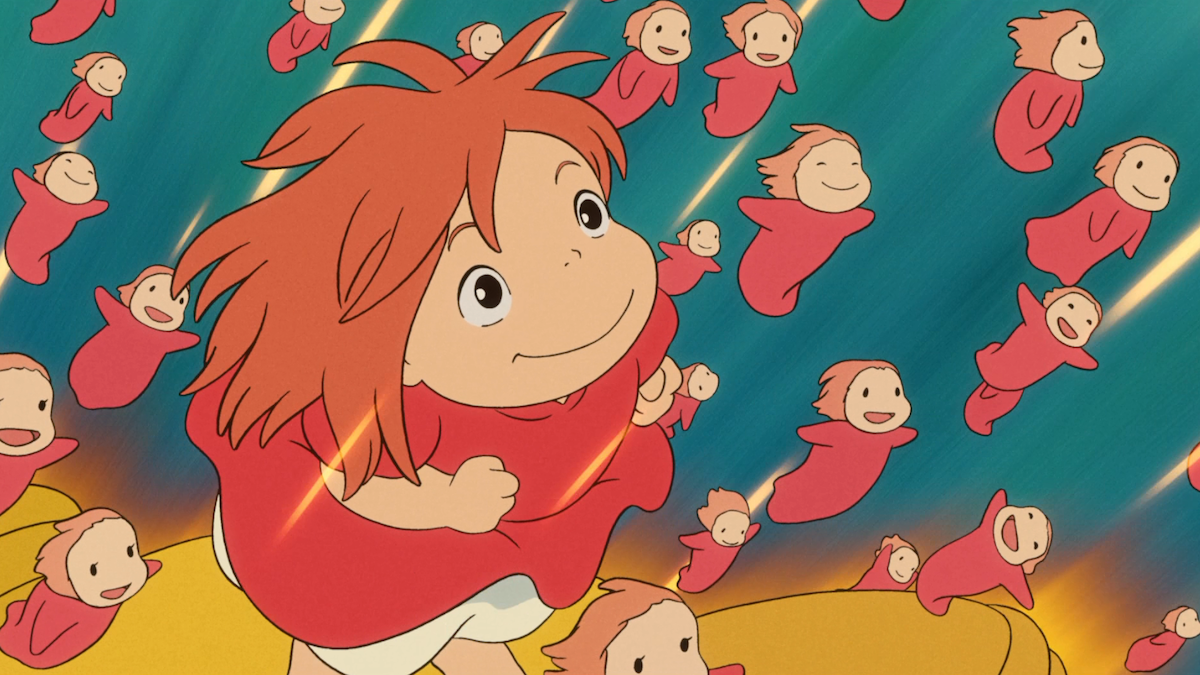
Sometimes it’s hard to believe that such a famously grumpy dude as Hayao Miyazaki can make such heartwarming and joyful movies. This story of a young boy’s friendship with a mysterious fish is wall-to-wall wonder and features some of the best hand-drawn 2D animation the world has ever seen. This is a true masterclass in what you can achieve with hand-drawn animation, with Miyazaki going so far as to close down Ghibli’s computer graphics studio to prioritize making this movie the absolute best it can be.
Beyond that there’s a touching emotional core, with Miyazaki intending the film as an apology to his son Gorō. The pair fell out after Miyazaki’s unvarnished criticism of Tales From Earthsea, so Ponyo‘s story of a father out at sea unable to contact his son was a way of showing his guilt for being an absent father.
6. Kiki’s Delivery Service (1989)
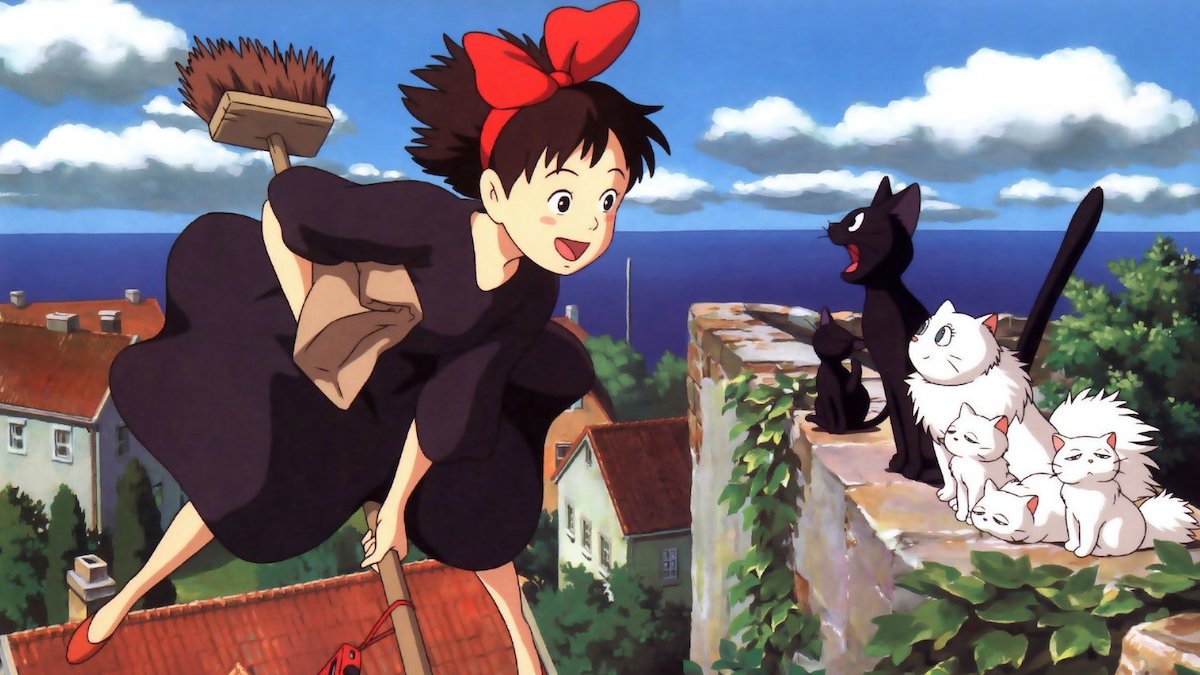
On paper a Studio Ghibli movie about an isolated young girl struggling to make her way through the world sounds like business as usual, but there’s something special about Kiki’s Delivery Service. Perhaps it’s as simple as a good-natured heroine, or the exhilarating broomstick flying sequences, or the careful balance of magic and urban realism, or that there’s no real antagonist and the stakes remain low – but this film is a real go-to watch if you’re feeling down.
The sequence later in the movie when Kiki loses her ability to fly after her self-confidence hits particularly hard, teaching the simple but often unspoken lesson that failure and vulnerability can teach you a lot about who you are. We’ve loved it since the moment we first saw it, and it’ll always hold a warm place in our hearts.
5. Porco Rosso (1992)
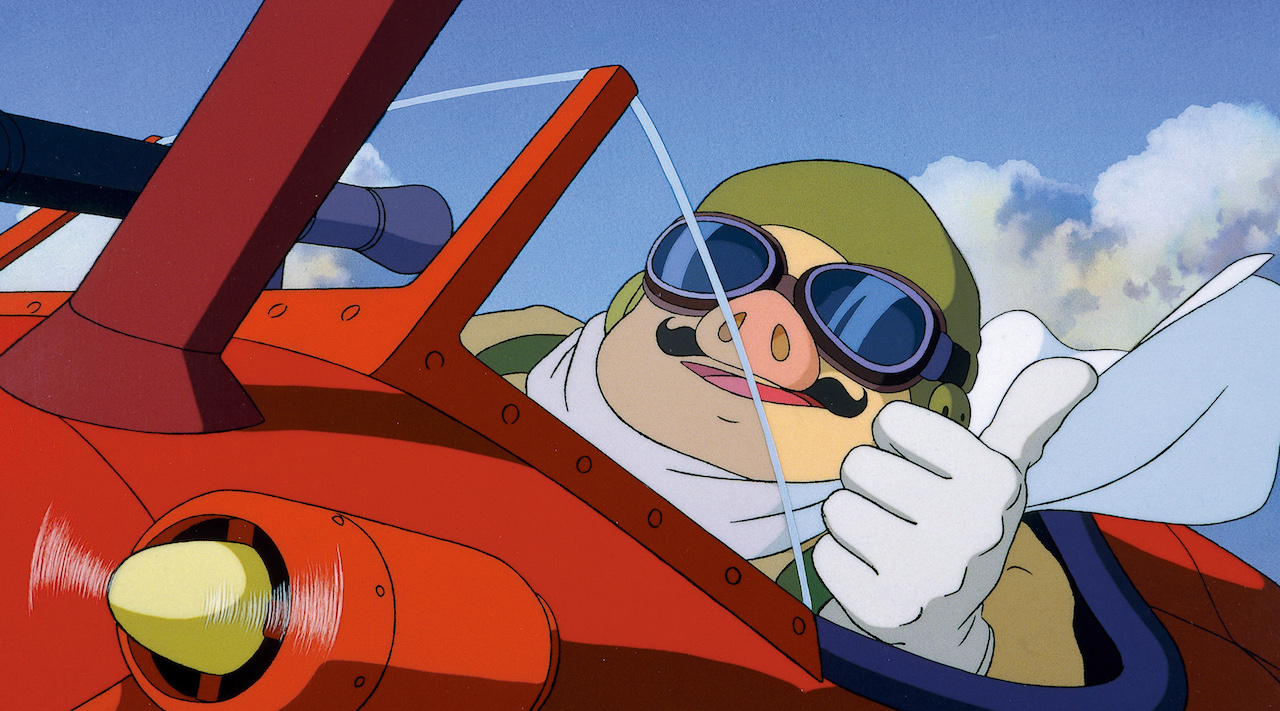
This surreal story of a fighter ace cursed with a pig’s body packs a punch, combining swashbuckling airborne drama with a pointed message about resisting fascism at all costs. We meet the insanely likeable Porco Rosso as a bounty hunter fighting pirates on the open waters of the Adriatic before retreating to his secluded island hideaway. But it’s not too long until the Italian air force are attempting to drag him back to his home country to fight in Mussolini’s army.
But, as Rosso memorably says: “I’d rather be a pig than a fascist.” Hell yeah.
4. Grave of the Fireflies (1988)
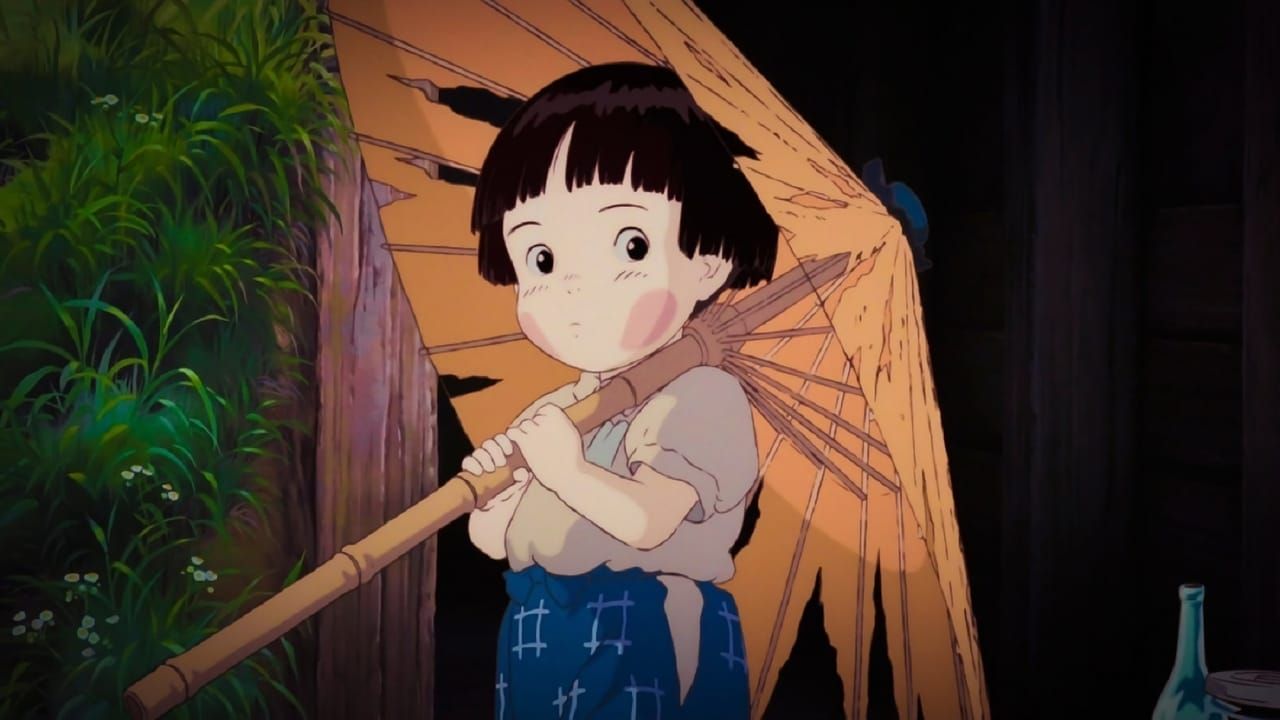
You will probably only ever watch Isao Takahata’s Grave of the Fireflies once, as it’s notorious for being one of the most soul-crushing movies around. The story is set in 1945 with Japan undergoing aerial bombardment and follows teenager Seita and his younger sister Setsuko as they escape their destroyed city and attempt to survive in the countryside. It… doesn’t go so well for them.
Grave of the Fireflies doesn’t pull any punches, but its unflinching realism and fantastic animation make it a gripping watch. It’s a monumental achievement, but that last ten minutes or so will ruin your day, so beware and don’t watch this with young kids around.
3. Princess Mononoke (1997)
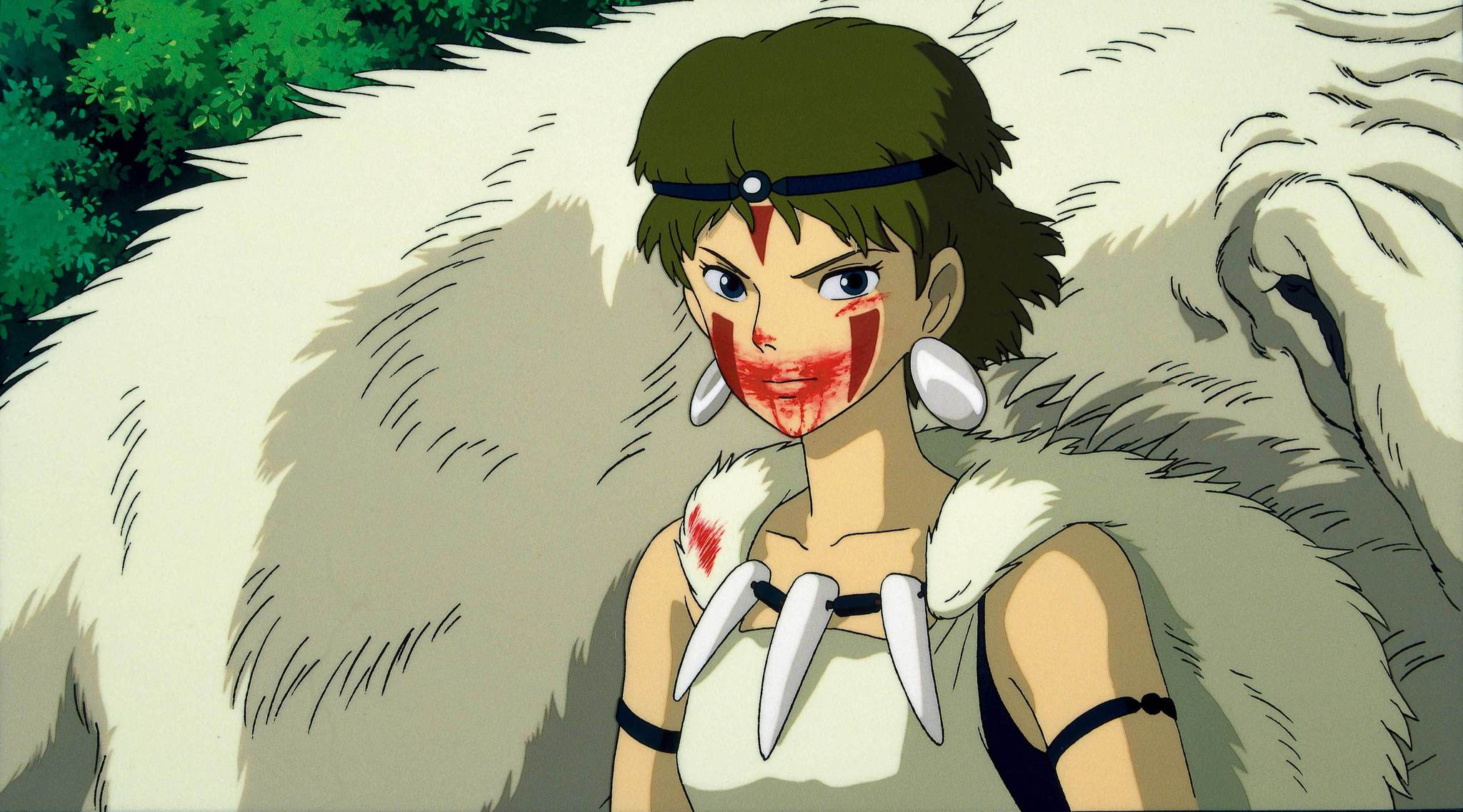
This complex, magical, and incredibly smart movie shows why Miyazaki is a class above practically every other director. In just over two hours he sets up a complete fantasy world with its own mythology, politics, and tensions, all told from the point of view of an outsider imbued with powers that will eventually destroy him.
Part of the genius of Princess Mononoke is that there’s no clear villain. In any other movie Eboshi, the leader of the newly industrialized Iron Town who are clearing the forest, would be a moustache-twirling baddie, but here she’s a kind but determined leader who’s built a sanctuary for former sex workers, lepers, and societal outcasts. This layered morality is present throughout an absolutely gorgeous movie that’s never going to look dated.
After Princess Mononoke hit Western theaters, Studio Ghibli was suddenly a big name around the world – and with good reason!
2. My Neighbor Totoro (1988)
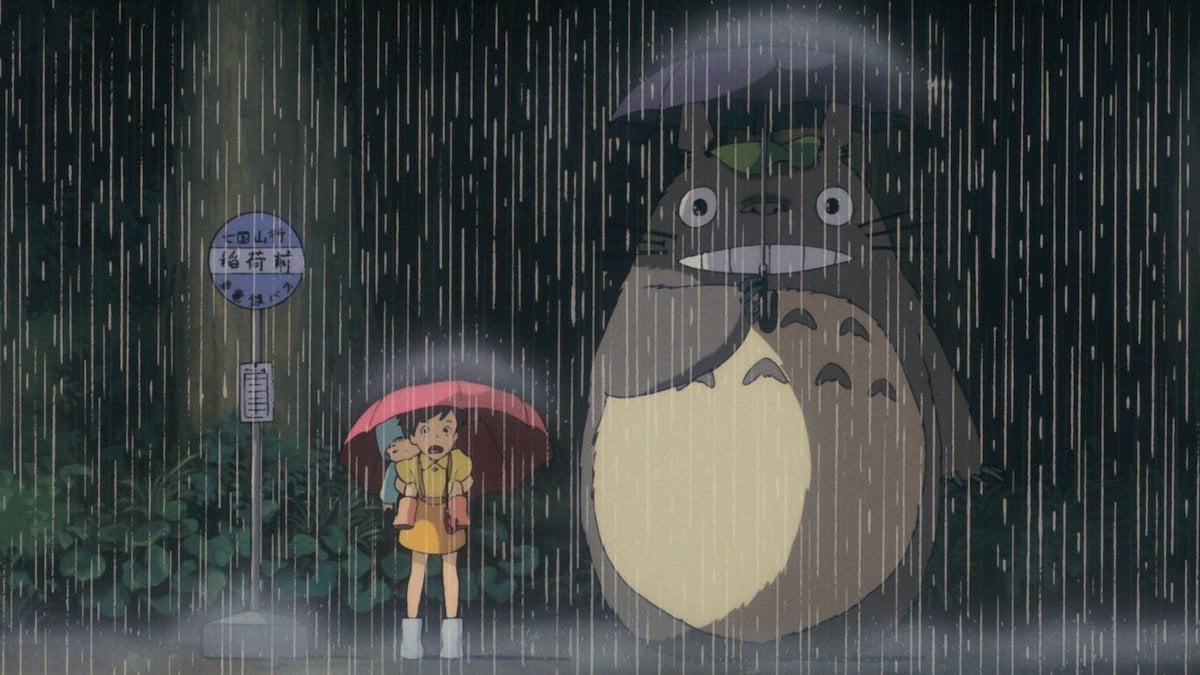
Basically distilled joy. Not much happens in My Neighbor Totoro: some kids move to the country, meet a magical woodland spirit, one of them runs away and then they find her. But that simplicity is its genius, allowing the characters to simply exist in a world without artificial storytelling pressures on them.
There’s nothing even close to an antagonist or villain in My Neighbor Totoro, just regular circumstances elevated by the presence of friendly forest spirit Totoro. In him Studio Ghibli found their mascot and seeing Totoro in their logo at the start of each movie is a constant reminder what this studio is capable of.
As a side note, this was actually released as part of a double bill with Grave of the Fireflies. Talk about emotional whiplash…
1. Spirited Away (2001)
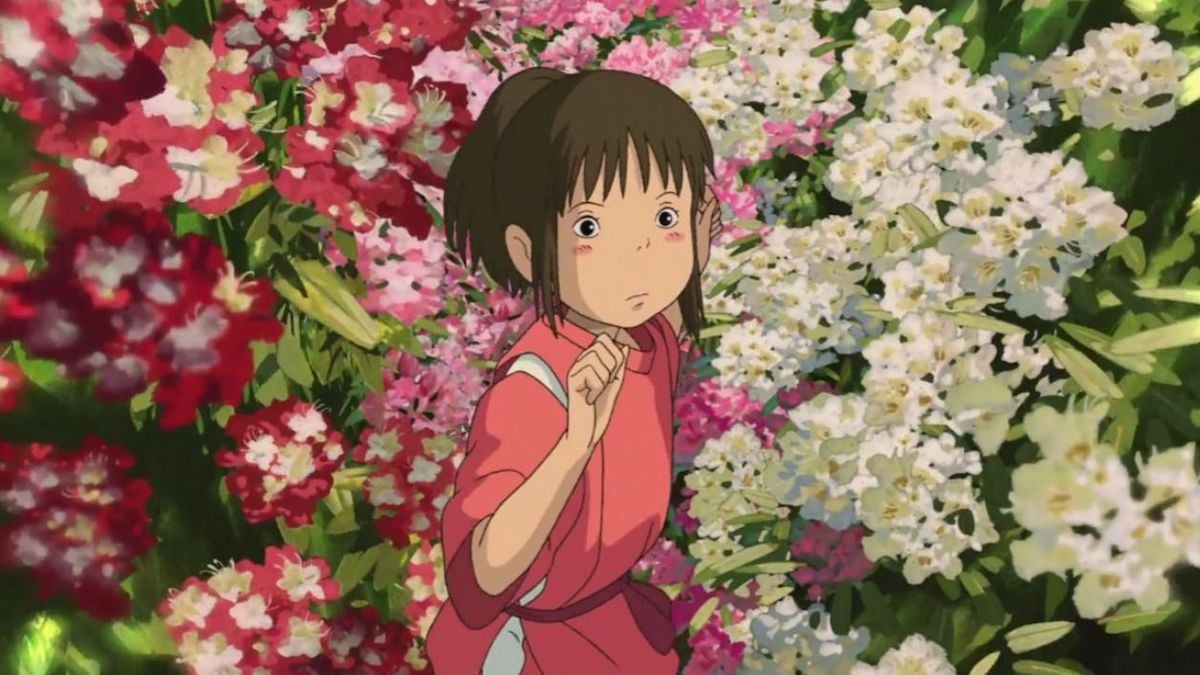
We don’t like settling for the obvious choice for top pick, but Spirited Away really is that good. Miyazaki is at the pinnacle of his talents, filling every frame with original fantasy conceits, bizarre and memorable characters, and a great setting in the spirit world bathhouse. Like all good fairytales there are horror elements too, either subtle like Chihiro having her name taken from her or more overt like her parents being transformed into ravenous pigs.
Spirited Away opened to a rapturous reception from audiences and critics and has since occupied a prime position in the Studio Ghibli canon. It deserves every accolade that can be thrown at it, with lists of the greatest animated movies of all time frequently putting it at the top spot. We hate to go along with the crowd on this, but nobody can deny that Spirited Away is about as good as it gets.

